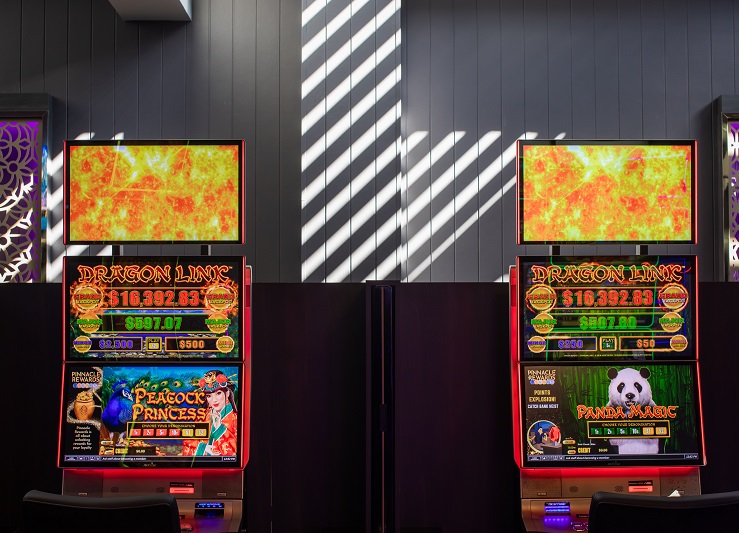The Victorian government has introduced the Gambling Legislation Amendment (Pre-commitment and Carded Play) Bill 2024 as part of its ongoing efforts to reduce gambling harm.
According to the state government, the Bill establishes a framework for introducing carded play on gaming machines in Victoria, which will require patrons to insert a player card to operate a gaming machine – a move the Tasmanian government announce last week it would defer.
The card will also give patrons access to information about their gambling and allow them to set pre-committed limits on how much they are willing to lose.
The reforms are intended to “give patrons more control over how much they spend, reducing gambling harm,” the Victorian government said.
“Almost 30 per cent of Victorians who play gaming machines experience gambling harm. These laws will save lives and livelihoods by giving control back to patrons,” Minister for Casino, Gaming and Liquor Regulation Melissa Horne said.
“Gambling harm has consequences, not just for the person gambling but for everyone around them. These reforms provide important protections for people using gaming machines and for their loved ones.”
As part of the new Bill, any new gaming machines approved by the Victorian Gambling and Casino Control Commission after 1 December 2025 must have a spin rate of at least three seconds per game, slowing games down by 40 per cent. The current gaming machine spin rate in Victoria is 2.14 seconds.
Additionally, from December next year, the maximum amount of money that can be loaded onto a machine at any time will be reduced from $1,000 to $100.
The government said it plans to pilot carded play in mid-2025 across selected venues before taking a “phased approached to implementation”. Club Management understands up to 40 venues are expected to participate in the pilot. However, under the Bill, the state government will have authority to compel venues to take part.
The move to introduce carded play to clubs and pubs follows the government’s mandate for Crown Melbourne to introduce carded play across all table games at the casino by December 2025.
While these reforms have been framed by the government as a critical step towards minimising gambling harm and tackling financial crime, it has drawn mixed responses from industry stakeholders.
Community Clubs Victoria CEO Andrew Lloyd voiced support for the intent of the changes but raised concerns about the lack of data from Crown Melbourne’s implementation and the feasibility of a statewide rollout.
“Where is the evaluation data? From a project management perspective, you need to undertake an evaluation and ask: ‘Is Crown successful? Has it eradicated laundering? Has it addressed minimisation?’ before you continue trotting that out for hotels and clubs. So far, we haven’t seen any of that evaluation data, which is what needs to occur,” he said.
Lloyd also questioned the practicality of implementing the technology across the state.
“The Crown implementation is just in one building. What we’re talking about is a wide-area network of hundreds of venues across the state. To my knowledge, that has not been done anywhere else in the world,” he said.
“You’d need to have a massive IT project team put this together with some pretty high-level companies informing the build of it. That’s hasn’t been put together, so we’re very concerned with the way the project is being rushed.”
Francis Venues managing director and Newport Social Club operator Tom Francis has expressed his disappointment in the Victorian government’s decision to continue with carded play.
“Despite yearlong consultation and numerous recommendations of effective harm minimisation strategies, Victoria will be moving forward with a fraught and problematic system,” he said.
“We look forward to an ongoing partnership with the Government and being involved with the pilot to achieve the best outcome for patrons and the industry.”
AHA Victoria CEO Paddy O’Sullivan said the organisation supports evidence-based measures to reduce gambling harm.
“AHA (Vic) continues to advocate for evidence-based harm minimisation and anti-money laundering measures based on proven models, including those from other states,” he said.
“The AHA is working with the Department, Government and industry to ensure the announced pilot delivers key insights around the use of technology to drive appropriate outcomes.
“We await the second reading of the Bill in the Parliament tomorrow to provide further analysis.”
Meanwhile, Endeavour Group has stated will offer to participate the carded game trial when it commences, but goes on to highlight the success of facial recognition technology being used in South Australia as a means of gambling harm minimisation.
“Based on its success to date in South Australia, Endeavour is optimistic about the role Facial Recognition Technology (FRT) can play in harm minimisation, with trials conducted in ALH Hotels in other states as well,” the company said in a statement.
“As previously stated, Endeavour supports a reduction of cash load-up limits to $100 for its Victorian EGMs, a measure already in place in South Australia. Further to this, EGMs in ALH Hotels in Victoria already operate with three-second spin rates.
“Endeavour maintains an active and constructive dialogue with the Minister and Government on potential harm minimisation and anti-money laundering initiatives through a variety of forums, including the Government’s technical working group.
“Our membership of this working group is ongoing, and we confirm our continued commitment to engaging with regulators and governments in all jurisdictions, and participating in trials to provide key insights around the future use of technology.”
These latest reforms follow the state government’s introduction of mandatory closure periods for gaming rooms in Victorian clubs and hotels, which took effect on 30 August. Under the regulation, gaming areas must be closed daily from 4am to 10am.


Leave a comment